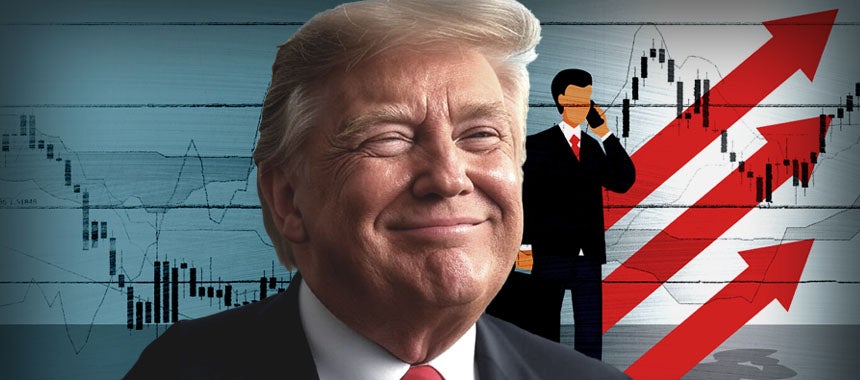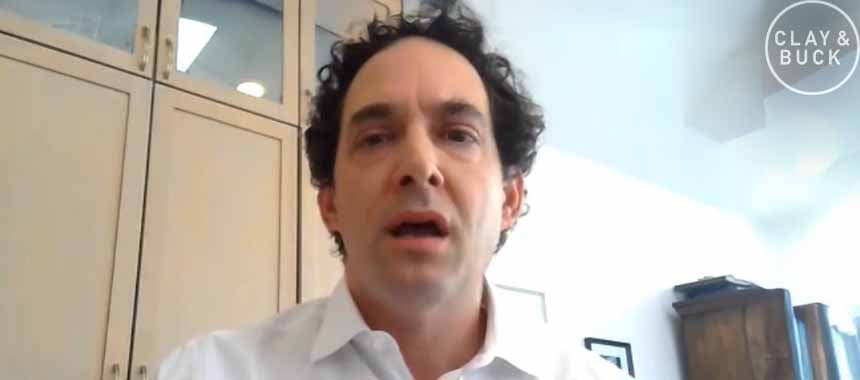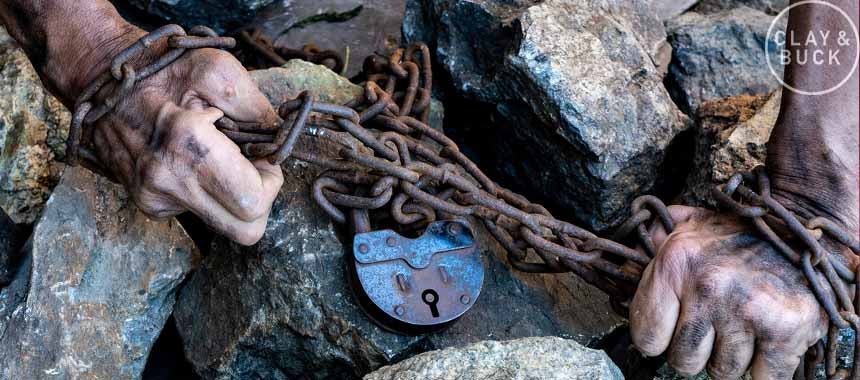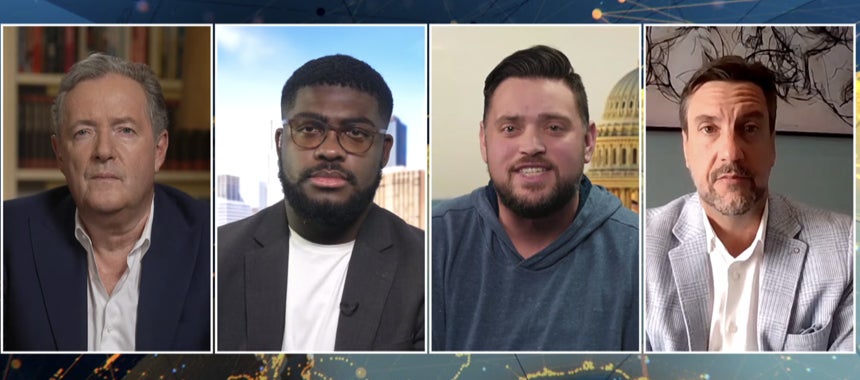National Security Analyst Steve Yates on the Ukraine Crisis
11 Mar 2022
CLAY: We are joined now by former Bush National Security Administration official Steve Yates. Appreciate him joining us right now to talk about the latest in Ukraine. Steve, I know it’s been probably a crazy couple of weeks for you trying to keep tabs on everything that’s going on, talking to everyone that you know. What would you say has surprised you…? Couple-part question here to start with: What surprised you the most, and where do you think we are headed from here?
YATES: Well, thanks, Clay. I think what has surprised me the most is really what has been breaking in the last couple of days with this effort to tie some biological labs in Ukraine to kind of an Iraq-style pitch to the U.N. by now Russia probably backed by China suggesting this was preemptive self-defense on the part of the Russia.
I have to admit, I did not see that kind of a thing coming when this broke out, and I think a close second to that is the resiliency of the Ukrainian people. I knew that there would be resistance, but I’m, frankly, impressed — largely being left alone by the international community — of them being able to grind this out against Russia. That, I think, has been a pleasant surprise.
BUCK: Hey, Steve, it’s Buck. There has obviously been a lot of back-and-forth the last couple of days over the possible provision of MiG fighter planes of Polish origin through Germany via the U.S. to Ukraine. So, essentially, they’re handing us planes — they would get new planes from us as part of the initial pitch — and the older planes they have would go to the Ukrainians to fight. That has been scuttled for now by the Biden administration. How do you analyze and assess that? Is it a provocation? Is it a good idea? Would it change much in this battle? What do you make of it?
YATES: Well, I think there’s been some terrible fumbling by the Biden administration in terms of handling an ally like Poland in this. In general, I think it’s a good principle to help others help themselves. I think that’s what the United States should be doing with Europe without our being the front of it. It’s what other Europeans should be doing for the Ukrainians right now.

So if the people of Poland want to provide material assistance, the United States shouldn’t say no and it shouldn’t really be seen as a provocation any more than, say, Putin invading a neighboring sovereign country is. I don’t think it was really that much of a status quo breaker, and I thought it was really, really awkward for team Biden to kind of say, “You can’t or maybe you can,” and then sort of pull it right back. It was just terrible all the way around.
BUCK: Would the planes make a difference, though, Steven?
YATES: I do think the planes would make a difference. I think the Ukrainians need all the materiel they can get at this point. Number one, to give them confidence to keep going with their resistance. Number two, maybe that would have the potential to change Putin’s calculus. If he sees that Europe is serious about protecting Europe, then fundamentally that gets at what’s at the heart of this, which is Russia’s relationship with Europe and Europe’s response to both the energy dependency and the security problem.
CLAY: Steve, how long does this go on, right? I mean, we have what appears to be almost a siege-like situation going on with Kiev as they are slowly encircling the city to strangle it down, it seems, the Russians. Is this something that — we’re sitting right now in March — in April, May, and June, this is still going on, or based on what you are seeing, is there going to be a resolution sooner than that?
YATES: Well, sadly we’re really in the seventh and eighth year of a war already, and so we’re just catching one act of this drama at this point. This current version of it, I think, could break a number of different ways. Every once in a while, Vladimir Putin suggests he’s looking for a way to kind of consolidate his gains and sort of sue for some semblance of peace.
But the Ukrainians need some kind of security guarantee that is not coming from NATO, is not coming from the United States. And so absent that, I think they keep grinding this out for a long time, which I think is very upsetting to a lot of people, rightly so. But I just don’t see a way around that unless something really breaks.
BUCK: Speaking to Steve Yates, former deputy national security adviser to Vice President Dick Cheney, and also founder of the America First Policy Institute. Steve, the Putin goal here, is it strangle Kiev, take half the country and make it part of the Russian Federation after negotiations with a beaten-down Zelensky government? Seize the whole country and then suppress any insurgency? What do you think Putin’s endgame is?
YATES: My going-in proposition was that he was just seeking to knock the legs out from under the current government and install a puppet and would be happy having a friendly, reliable sphere of influence as his buffer. That I think calculus has changed by getting bloodied through this, and I think he’s now trying to push for more maximalist options of actually controlling Ukraine — all of its territory — outright. The only reason question is whether enough of a deterrence can be put in place and whether sanctions actually bite, which I don’t think they’re strategically biting sufficiently yet to change his calculus to just accept where he has taken territory and call it a day.
CLAY: Do you think, Steve, that Putin would be willing to use tactical nukes based on what we are seeing so far, or do you think the threat is more bark than it is bite? How do we analyze his perspective here, given that many of his decisions seem to have surprised the so-called experts so far?

YATES: Well, I think that’s the real challenge in it, that everything has been a surprise to the intelligence set so far, and I think that there’s no question that he is willing to do things. He’s been willing to assassinate and poison foreign leaders. He’s been willing to spread all kinds of noxious things in the system. And he is, of course, collaborating with the People’s Republic of China which unleashed a toxic virus out into the world for two years. So I don’t think we can count on their sense of humanity or restraint. There’s been talk of tactical nuclear weapons openly for a couple of weeks now. I’d like to believe that wouldn’t happen, but I think we have to be very, very prepared for all outcomes at this point.
BUCK: Stephen, what would you advise the Biden administration to do right now if you were back in the kind of role you were under the Bush administration?
YATES: Number one, first do no harm. Let others who want to help the Ukrainians the way they choose go forward and do it. Number two, I think find a way to press the Europeans to go much further, much faster on realigning their dependency relationships and their defense capabilities, because America has big challenges in other parts of the world too. It cannot afford to carry Europe’s weight when Europe can afford to carry it itself.
CLAY: Outstanding stuff. Where do you see us…? I guess last question. I know predicting is so incredibly difficult to do. But if you were, based on looking at the all the data right now, trying to analyze it, where are we going from here over the next couple of weeks?
YATES: Well, with regard to Russia-Ukraine, I think we’re pushing toward a moment of possible decision about, is it a deal to be had and are serious leaders gonna come to the table and try to impose one that give the Ukrainians some real sense of security and gets Moscow its guarantee that it seeks? It’s an ugly deal, one no one really wants, but that might be the only way that this military conflict takes at least a pause. Otherwise, we’re grinding ahead with what we have seen, and the people of Ukraine will continue to pay a dear price.
CLAY: Stephen Yates, thank you for giving us the time and breaking down all the latest situation in Ukraine with us.
YATES: My pleasure. Thank you.
Recent Stories

BOOM! Blockbuster Jobs Report Shocks "Experts"
Clay, Buck and President Trump were all right -- again.

Alex Berenson Sounds the Alarm on the Dangers of Cannabis
He was right about covid and now he's warning us about the dangers of modern marijuana.

Spanish Is the Language of Anti‑Colonialism? History Says Otherwise
This is a history lesson that should not be missed.

VIP Video: YouTube Has Changed Fame Dramatically
The guys take a look at how YouTube and other social media platforms have changed the nature of fame.






